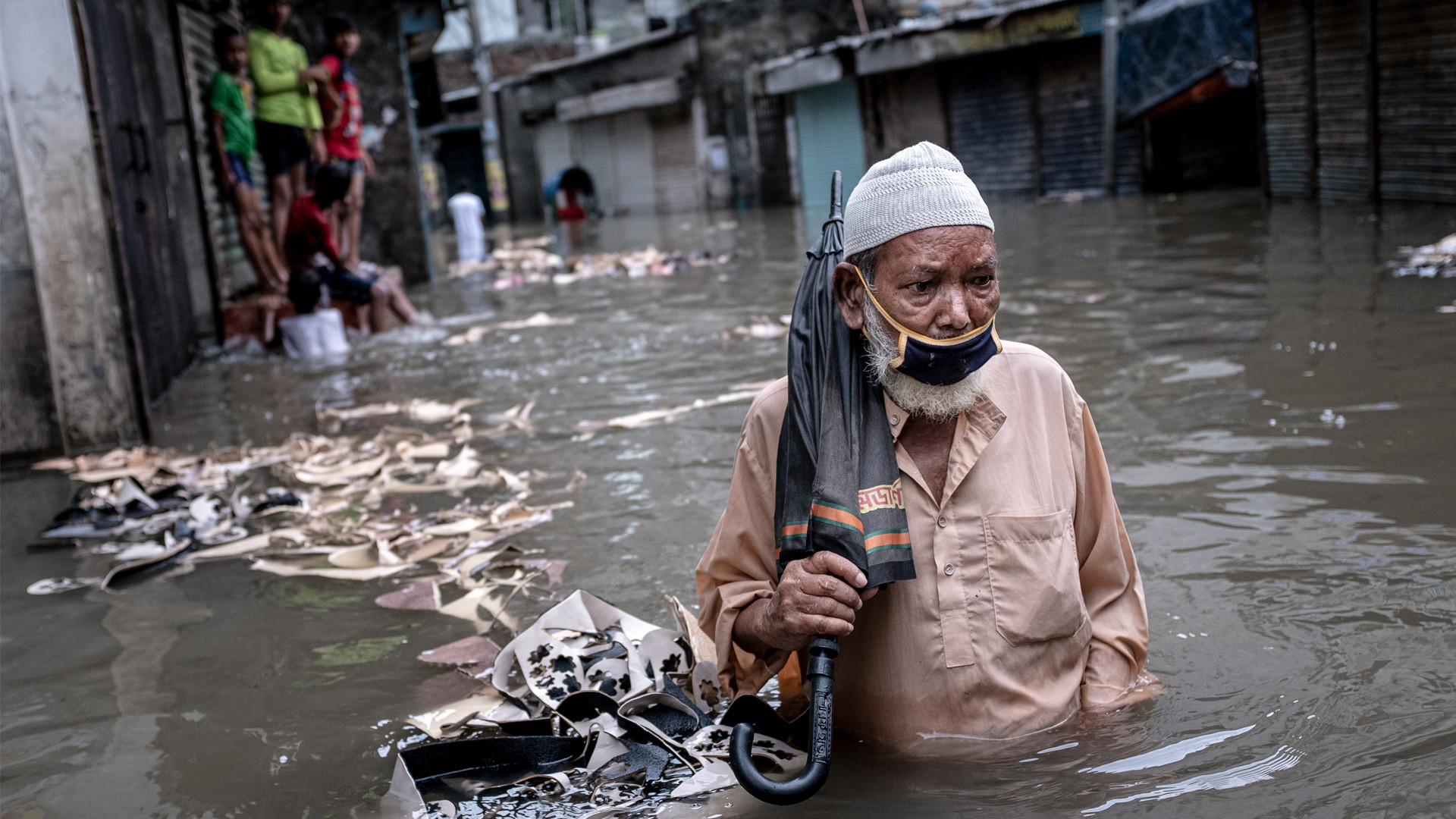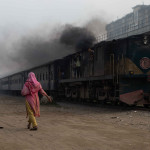Flooding and Waterlogging in Bangladesh:
Impacts and Community-Based Responses
Flooding and waterlogging are recurring and intensifying problems in Bangladesh, particularly during the monsoon season. These challenges are driven by both natural and human-induced factors, including heavy rainfall, poor urban drainage systems, rapid urbanization, and climate change. This paper examines the major impacts of flooding and waterlogging in both urban and rural settings, highlighting damage to infrastructure and agriculture, public health concerns, economic disruptions, and displacement. It further explores community-based and institutional responses, focusing on the role of organizations like Platform Bangladesh in promoting flood-resilient urban planning, rainwater harvesting, and emergency relief programs. The study concludes by advocating for integrated, long-term strategies to build climate resilience and ensure sustainable development.
1. Introduction Bangladesh is one of the most flood-prone countries in the world due to its geography, monsoon climate, and dense river network. While seasonal flooding is a natural phenomenon, unplanned urbanization and inadequate drainage infrastructure have transformed it into a chronic urban crisis. In major cities like Dhaka and Chattogram, even moderate rainfall can lead to prolonged waterlogging. In rural areas, river overflow and flash floods threaten agriculture and habitations. This paper explores the complex interplay of these factors and evaluates ongoing mitigation efforts.
2. Impacts of Flooding and Waterlogging
2.1 Damage to Homes, Roads, and Crops Floods and waterlogging cause extensive damage to homes, particularly in low-income neighborhoods built on marginal lands. Roads and transportation infrastructure are submerged or eroded, disrupting mobility and logistics. In rural areas, standing water destroys crops, affecting food security and rural incomes.
2.2 Spread of Waterborne Diseases Stagnant water becomes a breeding ground for mosquitoes and bacteria, leading to outbreaks of waterborne diseases such as cholera, diarrhea, and dengue fever. The lack of sanitation and clean drinking water during floods exacerbates these health risks, especially among children and the elderly.
2.3 Traffic Congestion and Stalled Economic Activity In urban centers, waterlogging paralyzes transportation systems, resulting in traffic congestion, lost work hours, and delayed deliveries. Commercial and industrial activities are disrupted, leading to economic losses and reduced productivity.
2.4 Displacement of Urban and Rural Families Flooding often forces temporary or permanent displacement of families, both in cities and in floodplain villages. Displaced populations face loss of shelter, livelihoods, and access to education and healthcare, contributing to long-term vulnerability and urban poverty.
3. Strategic Responses and Community-Based Solutions
3.1 Flood-Resilient Urban Planning Urban planning must prioritize sustainable drainage systems, elevated roadways, and zoning regulations that protect wetlands and natural water bodies. Platform Bangladesh advocates for participatory planning approaches that integrate local knowledge and risk mapping into urban development.
3.2 Rainwater Harvesting and Drainage Improvement Rainwater harvesting reduces runoff pressure on drainage systems and provides supplementary water supply during dry periods. Upgrading stormwater drains, dredging canals, and maintaining retention ponds are critical to managing urban flood risks.
3.3 Emergency Relief and Preparedness Programs Platform Bangladesh and partner organizations implement emergency response initiatives, including distribution of food, water, and medical aid during floods. Community preparedness programs train local volunteers in first aid, evacuation, and communication during disasters.
4. Policy Recommendations To address flooding and waterlogging effectively, a multi-tiered approach is essential:
- Enforce urban zoning laws and protect natural drainage ecosystems.
- Invest in smart drainage infrastructure and green solutions.
- Develop flood early-warning systems and contingency plans.
- Support community-led resilience initiatives through funding and capacity-building.
- Integrate flood management into national development and climate adaptation policies.
Flooding and waterlogging are no longer seasonal inconveniences but persistent challenges threatening urban and rural stability in Bangladesh. While infrastructure upgrades are necessary, community engagement and localized solutions are equally vital. By combining structural measures with education, planning, and emergency preparedness, organizations like Platform Bangladesh contribute to a more flood-resilient and equitable future.
References (References would include government reports, academic research, NGO publications, and data from the Bangladesh Meteorological Department and Ministry of Disaster Management and Relief.)


